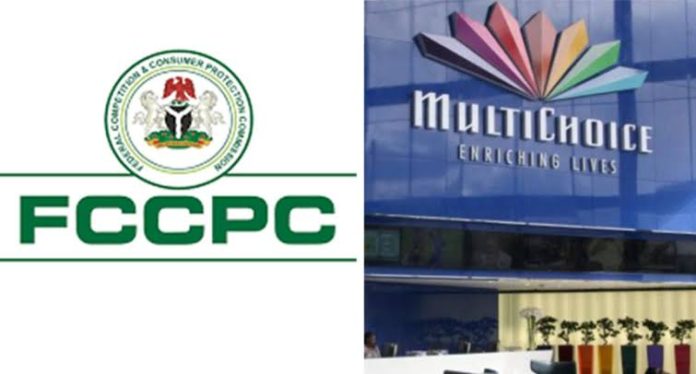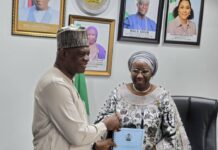By Emiola Daniel
A new and troubling trend has emerged in Nigeria’s media space. Let’s call it the “Pay-As-You-Go Propaganda” industry—a phenomenon where litigants, after losing in court, engage an army of pseudo-legal analysts, social media influencers, and media mercenaries to rewrite rulings and hoodwink the public.
The most recent example involves MultiChoice Nigeria, operator of DStv and GOtv, whose legal action against the Federal Competition and Consumer Protection Commission (FCCPC) was thrown out by a Federal High Court in Abuja. Since then, a slew of sponsored commentaries has flooded the media, misrepresenting the court’s judgment and maligning the Commission’s integrity.
Let’s be clear: MultiChoice was the plaintiff—not the FCCPC, as many misleading headlines suggest. The company had sought to restrain the FCCPC from investigating its pricing model. The court, however, dismissed the case outright as an “abuse of court process.” It found that the suit duplicated an ongoing matter brought earlier by a consumer, Festus Onifade, in which the FCCPC was also a party.
This ruling—delivered by Justice James Omotosho on May 8—was unambiguous: the FCCPC retains full powers under the Federal Competition and Consumer Protection Act (FCCPA) 2018, including the right to investigate allegedly exploitative pricing practices. No relief was granted to MultiChoice. None.
Yet, in defiance of this clarity, some voices in the media now falsely claim that the court “reined in” the FCCPC. Such assertions are not only misleading but legally indefensible. They appear part of a calculated campaign to discredit regulatory oversight and protect unchecked corporate dominance.
Why the desperation? Likely because MultiChoice must now answer the Commission’s pending questions. In February, the FCCPC had invited the company to an investigative hearing—an invitation that coincided with Onifade’s pending lawsuit and came amid growing consumer complaints about incessant price hikes. Instead of cooperating, MultiChoice ran to court in March to stall the inquiry. The court rightly saw through this manoeuvre.
Beyond the legal arguments, a moral and economic question looms: what kind of service provider, facing regulatory scrutiny in Nigeria, hikes subscription rates here while simultaneously slashing prices in South Africa “in solidarity with citizens” grappling with rising costs?
Between May 2023 and March 2025, MultiChoice increased the price of its Premium Package in Nigeria from ₦16,200 to ₦44,500—a staggering 174% rise in under two years. The most recent hike, effective March 1, 2025, saw prices jump by over 20%. By contrast, during the same period, South African consumers enjoyed price reductions of up to 38%, alongside service upgrades. In Uganda, MultiChoice introduced weekly pay-per-view plans under the “Ka Weekie” initiative, offering flexible options based on consumer feedback. Nigerian consumers received no such concessions.
It is against this backdrop that the FCCPC’s intervention must be understood. Contrary to the fiction being peddled, the Commission does not set or control prices. What it does—under Section 72 of the FCCPA—is investigate where a dominant market player may be engaging in excessive or unfair pricing to the detriment of consumers.
Indeed, in several public forums last year, FCCPC chief executive, Mr. Tunji Bello, reiterated that the agency operates within a free-market framework and is not a price control board. What the Commission opposes is market abuse—and rightfully so.
The attempt to cast the Commission’s action as overreach betrays either ignorance or deliberate mischief. There is a clear legal distinction between price control (Section 88 of the FCCPA) and regulatory investigation of dominance and anti-competitive conduct (Section 72). Conflating the two is intellectually dishonest.
Some media mercenaries have even gone as far as to argue that pay-TV is a non-essential service and thus immune from oversight. But the FCCPA does not limit consumer protection to “essential” services. It applies to any good or service offered for value in Nigeria, particularly where harm or abuse is suspected.
The argument that MultiChoice offers the “lowest rates in Africa” also crumbles under scrutiny. Affordability must be measured against local incomes and economic realities—not foreign exchange rates. Nigerians are paid in naira, not dollars. The issue isn’t simply how prices compare internationally, but whether they are fair and sustainable in the local context.
It is not just the FCCPC that has raised concerns. On March 23, 2025, Save the Consumers—a reputable advocacy group—issued a strongly worded statement condemning MultiChoice’s “monopolistic antics.” The group called on regulators to investigate the recurring price increases and the company’s pattern of evading accountability.
In February, when MultiChoice first announced its intention to raise rates, the FCCPC requested that the hike be deferred pending the outcome of regulatory consultations. MultiChoice asked for a one-week extension, only to unilaterally proceed with the price increase—despite a pending invitation to clarify key issues. That was a clear act of bad faith.
And now, to mask its defiance, it appears the company and its sympathisers have launched a media offensive. Some allege the FCCPC’s stance will deter investors. This is a red herring. What truly deters investors is the absence of a rules-based environment, where dominant firms act with impunity. Far from scaring investors, robust regulation fosters competition, protects consumers, and builds trust in the market.
At the heart of this saga lies a simple truth: consumer protection matters. No company, no matter how powerful or influential, should operate above scrutiny. The FCCPC is doing its job—and doing it well. What is shameful is the attempt by some to twist facts, poison public discourse, and defend the indefensible for a few pieces of silver—or, as some allege, an all-expense-paid trip to watch football at the Emirates Stadium.
That, more than anything else, is the real abuse.
Emiola Daniel is a media law expert and writes from Lagos.














